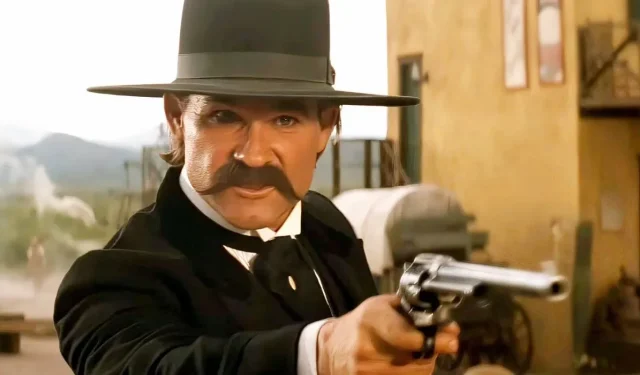
In the 1993 Western epic Tombstone, Kurt Russell’s portrayal of Wyatt Earp reflects a man wrestling with his past while seeking a peaceful future. Having retired from his law enforcement duties in Dodge City, Kansas, Earp envisions a quiet life in Tombstone, Arizona, where he plans to venture into the silver business with his brothers, Morgan and Virgil. Accompanied by their wives, they embark on this new chapter with intentions of leaving behind their violent histories.
However, Wyatt’s aspiration for tranquility quickly disintegrates. The film establishes early on that he is reluctant to return to the life of a lawman, portraying his firm resistance to re-engaging with the badge. Despite his determination, circumstances inevitably force Earp to confront the reality that the lawless environment surrounding him will not permit his retirement from justice. A catalyst of escalating tensions drives him back to duty, underscoring how, for Earp, the re-emergence into law enforcement was practically preordained.
Earp Confronts the Unavoidable Threat of the Cowboys
The Cowboys: A Menacing Crime Syndicate
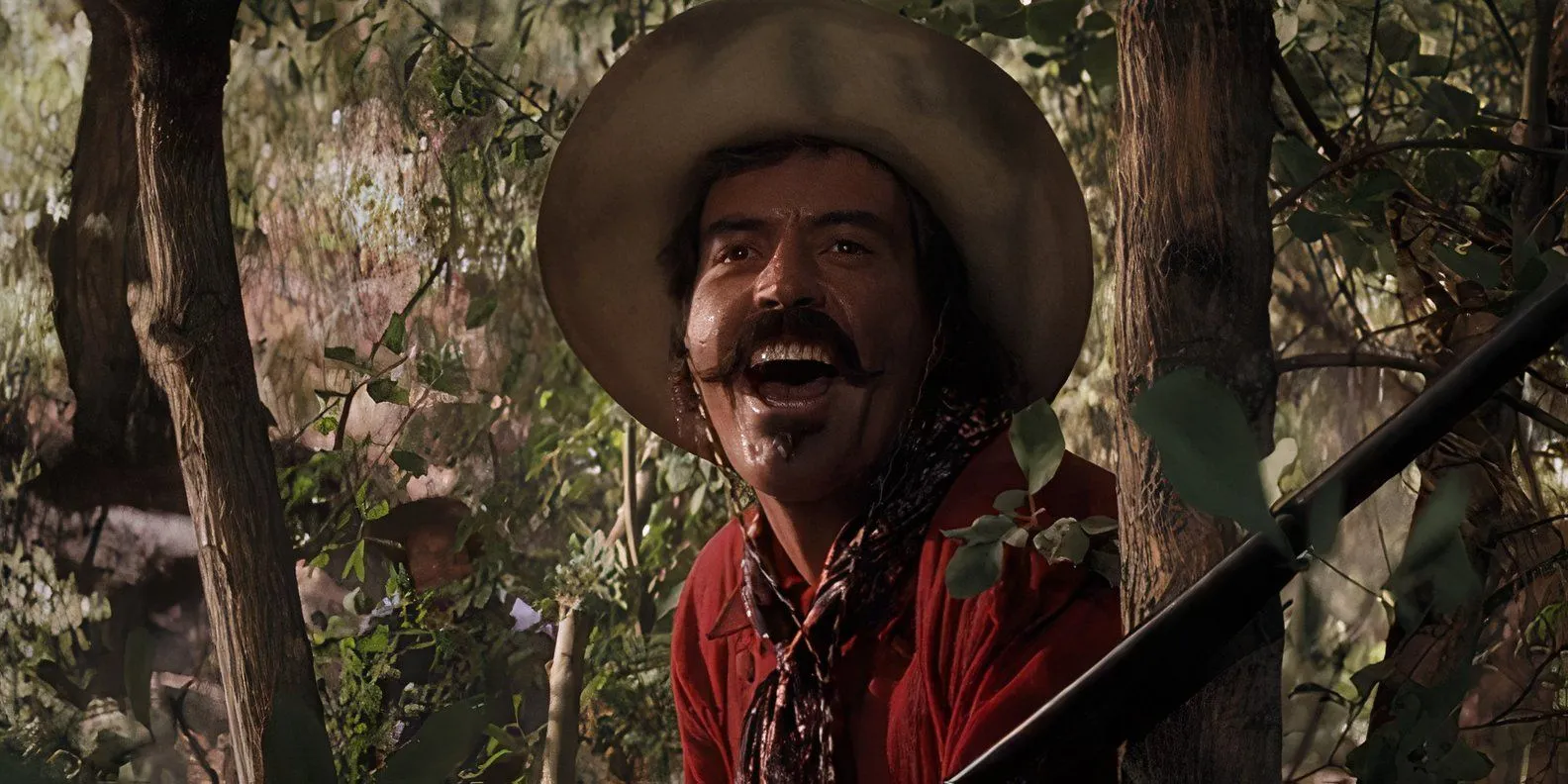
The principal adversaries in Tombstone are the Cowboys—an organized group of outlaws known for their intimidation tactics and criminal activities, easily identified by the red sashes they wear. This film’s depiction of the Cowboys is rooted in history, as they are inspired by the Cochise County Cowboys, one of America’s earliest recorded criminal organizations. Under the ruthless leadership of Curly Bill Brocius (Powers Boothe) and Johnny Ringo (Michael Biehn), the Cowboys become a significant threat to Earp and the townsfolk of Tombstone.
|
Tombstone Key Details |
||||
|---|---|---|---|---|
|
Release Date |
Budget |
Box Office |
RT Tomatometer Score |
RT Popcornmeter Score |
|
December 25, 1993 |
$25 million |
$73.2 million |
74% |
93% |
When Wyatt Earp witnesses the Cowboys’ burgeoning control over Tombstone, he recognizes their lawlessness cannot be ignored. The gang’s violent behavior escalates, prompting Wyatt to act. In an effort to restore order, he arrests Curly Bill, while Virgil takes charge as marshal. The Earp brothers collectively acknowledge the danger posed by the Cowboys and understand that someone must oppose this faction to ensure the safety of their town.
A Reluctant Alliance with His Brothers
United Against the Lawlessness
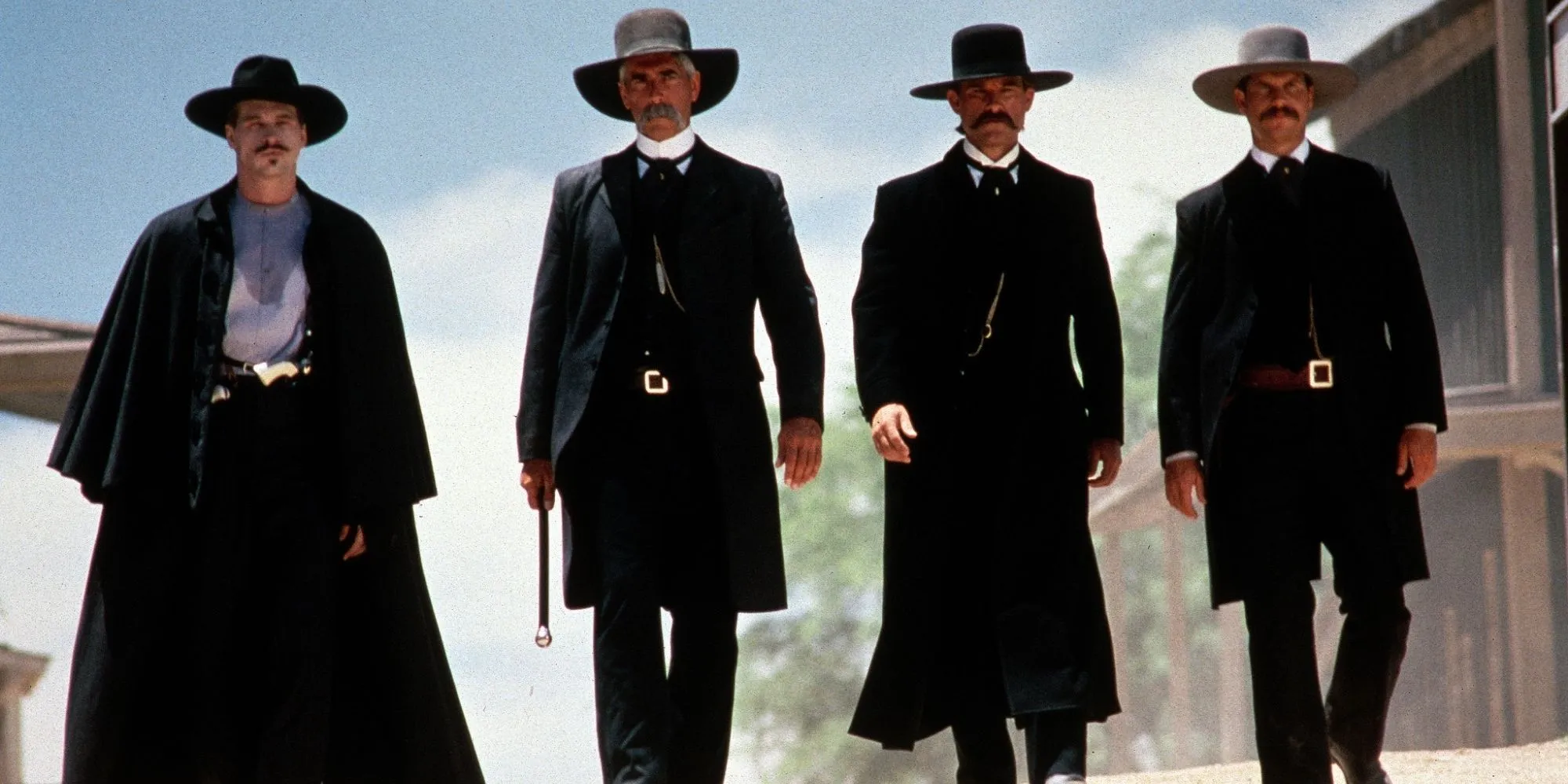
Virgil Earp emerges as a pivotal figure, advocating for the family’s involvement against the Cowboy menace. His strong stance against the gang’s lawlessness inspires Morgan, who eagerly joins him as a deputy. Morgan perceives this collaboration as an embodiment of the principles Wyatt himself would endorse—prioritizing righteousness over violence.
Notably, the casting choices for Tombstone almost took a different turn, with Richard Gere once considered for the role of Wyatt Earp. This change would have seen Russell stepping into the shoes of the iconic Doc Holliday instead, showcasing the dynamic nature of character portrayals in Hollywood productions.
Inevitability of Wyatt’s Return to Law Enforcement
A Call to Justice Beyond Personal Desire
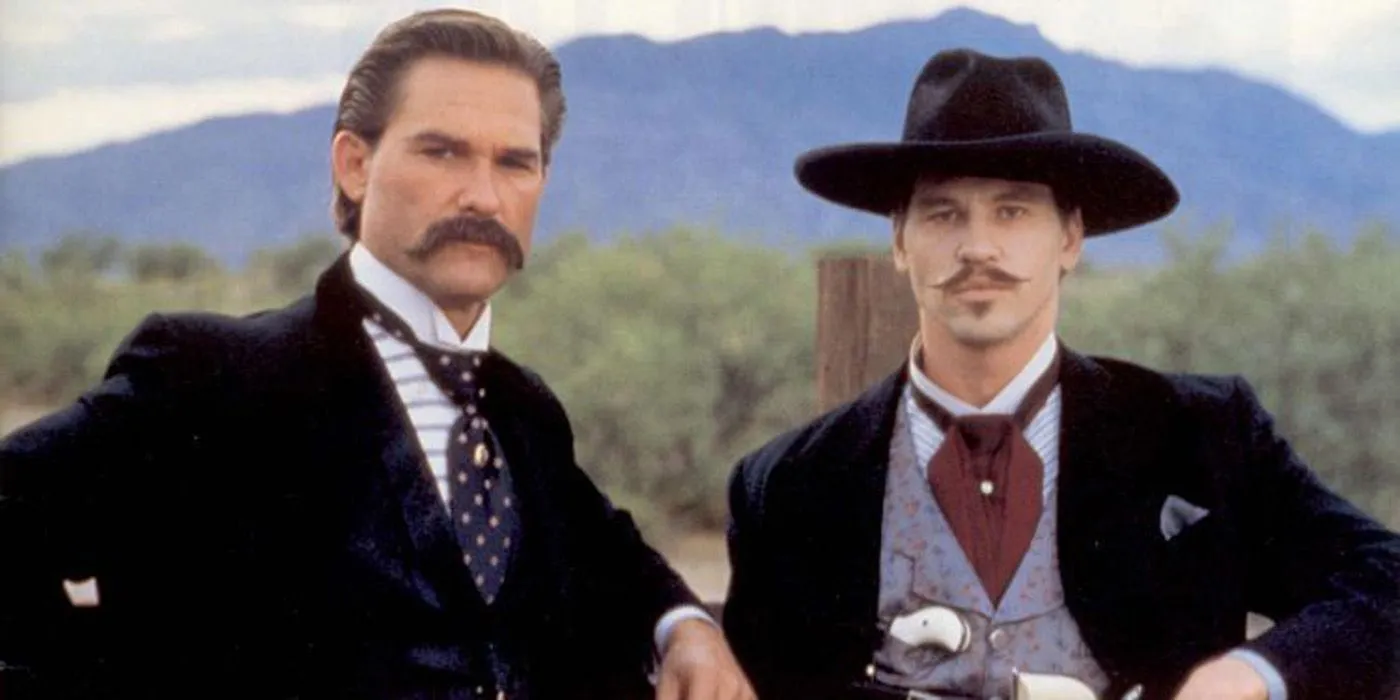
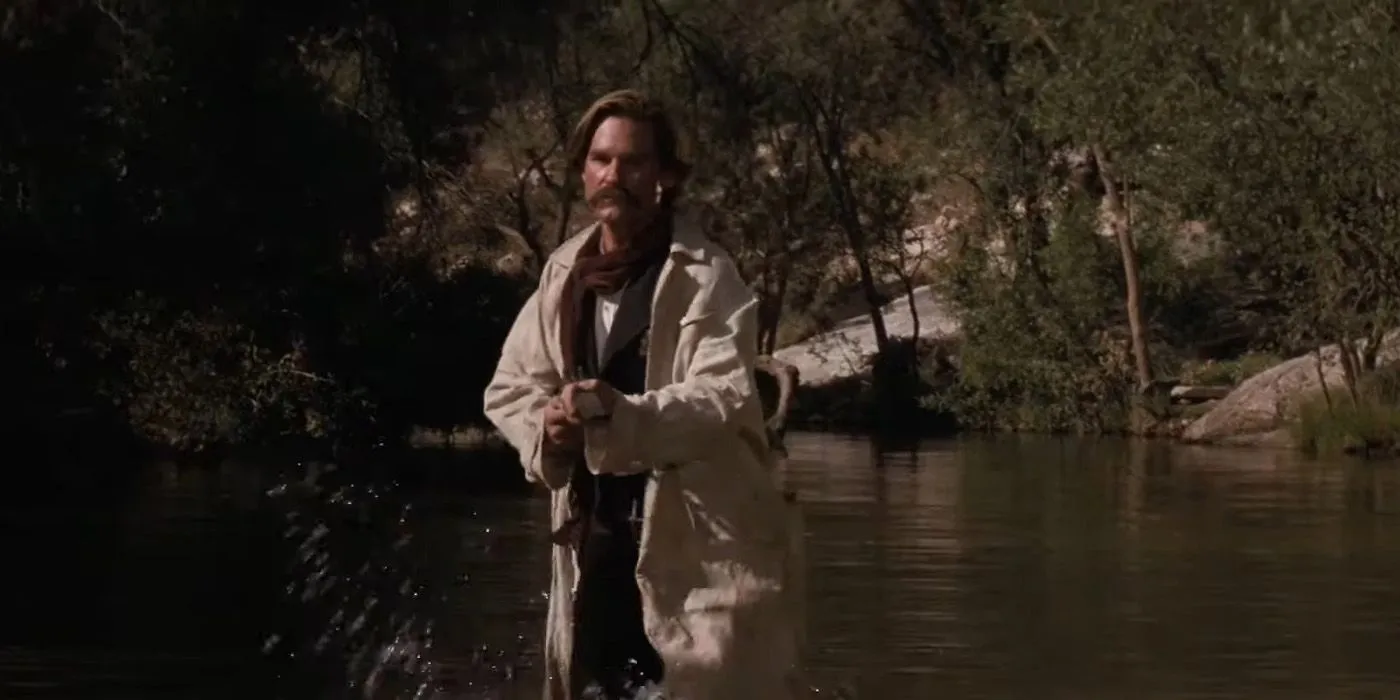
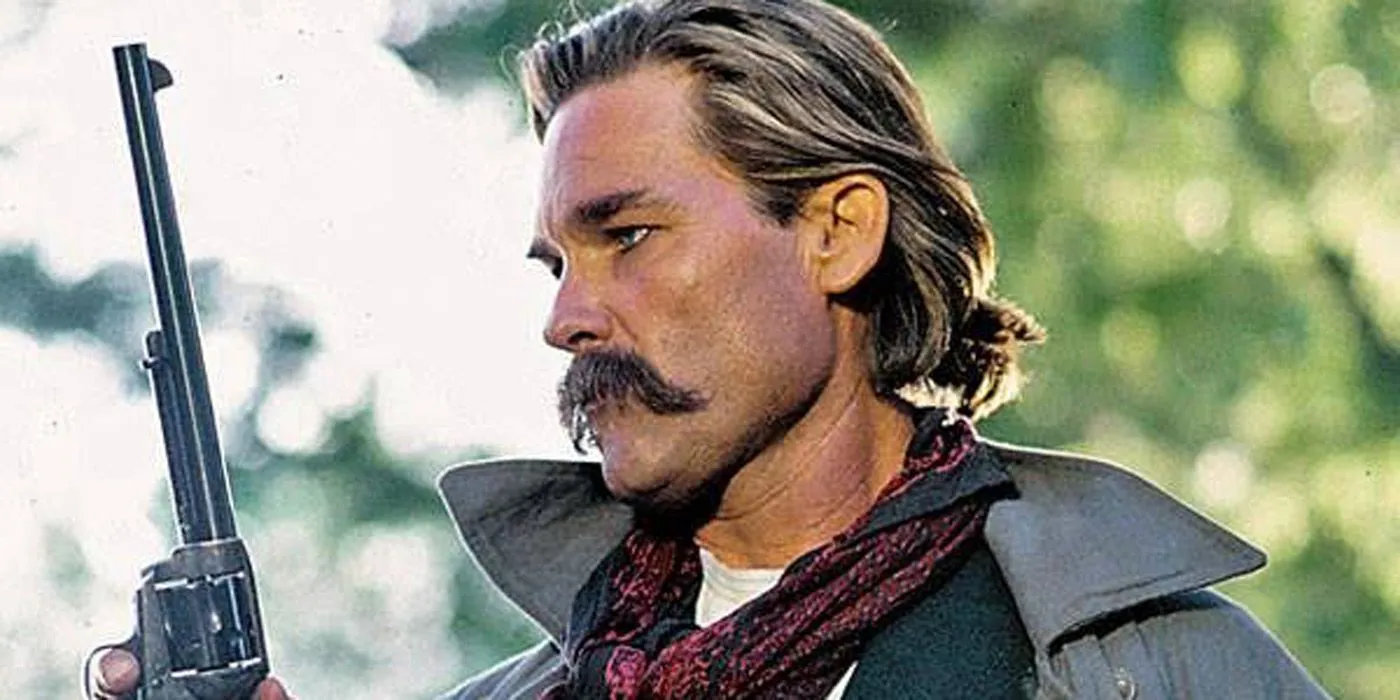
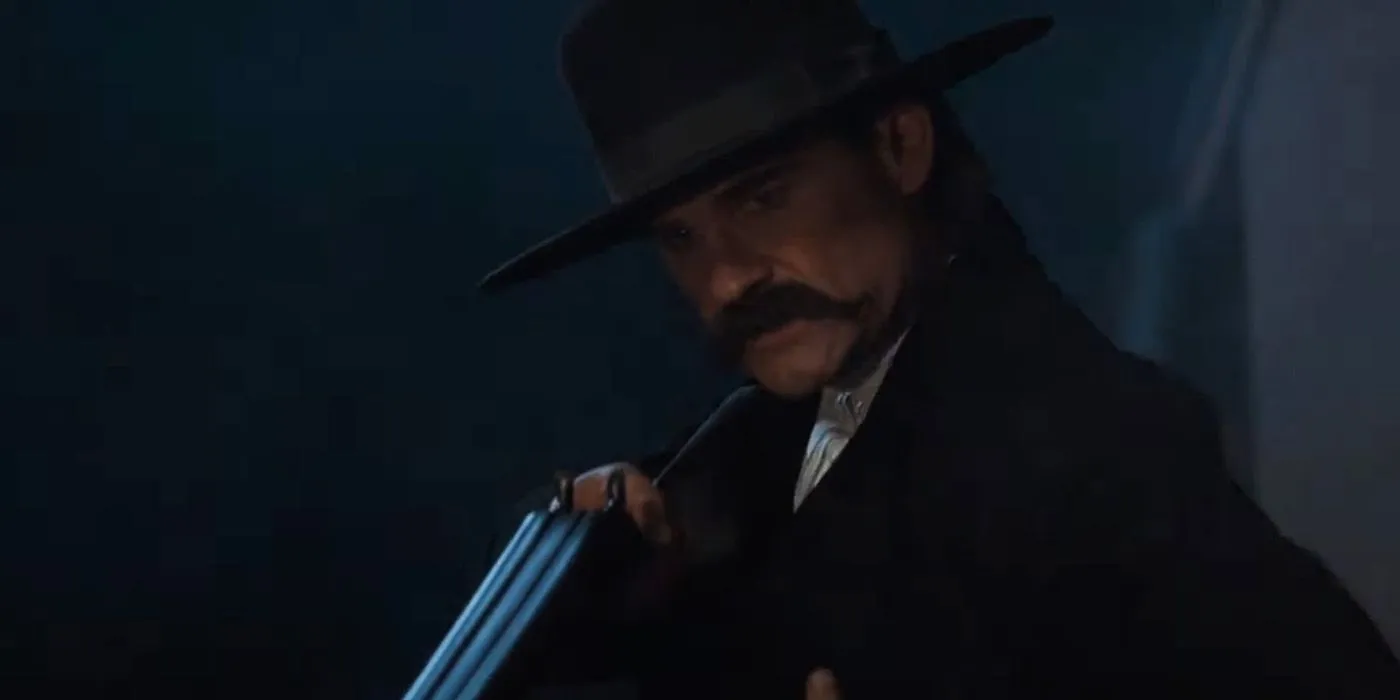
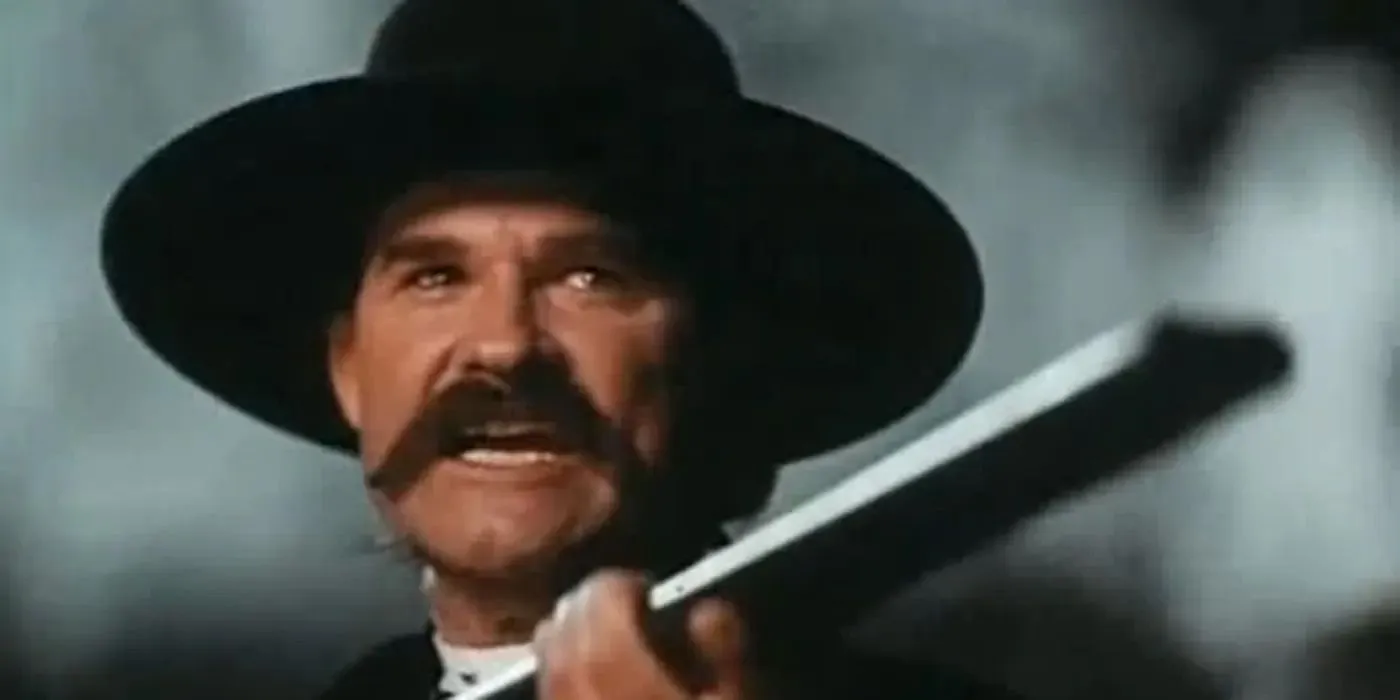
Despite his desire for a quiet life, Wyatt Earp’s formidable reputation as a lawman from Dodge City follows him. Influential figures in Tombstone repeatedly urge him to assume a leadership role to confront the escalating violence brought by the Cowboys. Earp’s persistent refusals, especially to his brothers, illustrate his intentions to leave behind his past as a gunman. Yet, Tombstone illustrates a clear message: Wyatt’s fate as a protector of justice is not just urgent but inescapable.
The continual appeals for Earp to resume his role in law enforcement serve as a narrative device that signals his eventual return to the badge. Therefore, his repeated assertions to lay down his weapon in Tombstone serve as both foreshadowing and evidence of his ultimate destiny. Wyatt Earp was destined to uphold the law, irrespective of his personal desires.




Leave a Reply